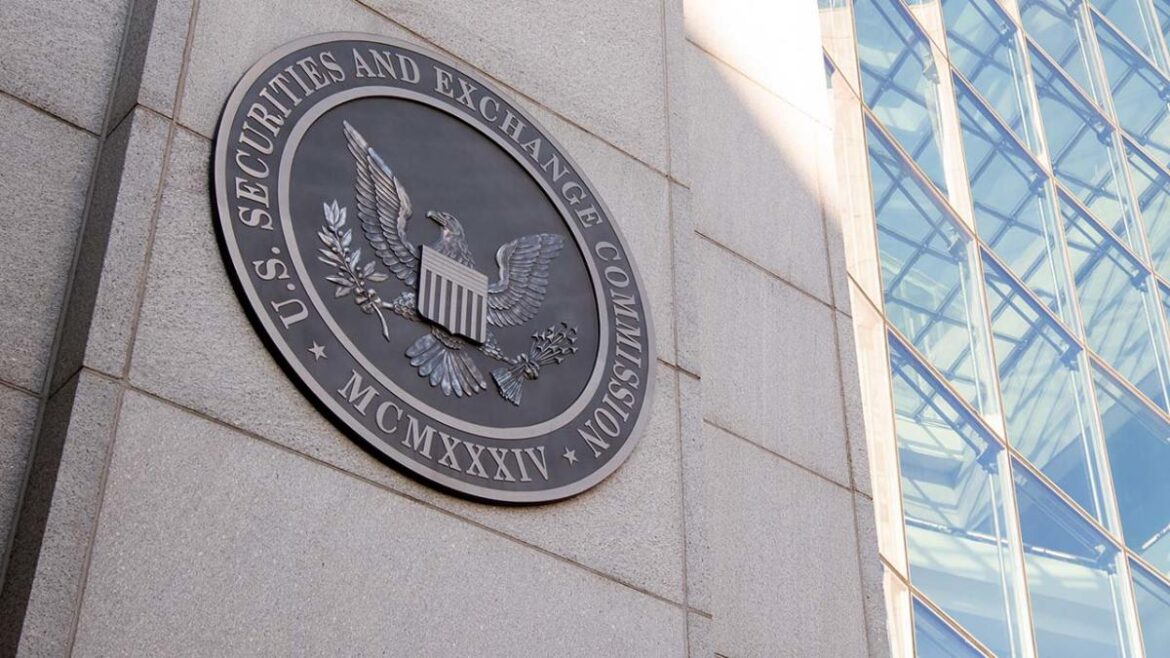
COO responsibilities will be shared, GameStop said.
Source link
GameStop
Pretzel-shop worker with pennies in bank account charged in $1M scheme to buy Tesla, GameStop, Nvidia shares
A part-time pretzel shop worker who had only 9 cents in his bank account is charged in a fraudulent “free-riding” scheme to buy nearly $200,000 of shares in Tesla, GameStop, and Nvidia without paying for them, the Securities and Exchange Commission (SEC) says.
Deyonte Jahtori Anthony, 23, of Concord, North Carolina, is accused of opening a brokerage account in July 2022 using a fraudulent application. The SEC says he overstated his personal income and made $1 million in bogus deposits from his bank account. At the time he was working at various fast-food and retail jobs – including the pretzel chain Auntie Anne’s – and had only 9 cents in his bank account.

According to a complaint, Anthony used “immediate access” credit extended to him by his broker-dealer to purchase nearly $200,000 in shares of Tesla, GameStop, Nvidia, and a cybersecurity ETF called HACK before his deposits could be reversed for insufficient funds. The brokerage is not named in the complaint.
The brokerage caught on to the scheme, froze his account, and liquidated his holdings before he made any profits, the complaint says.
The brokerage liquidated Anthony’s holdings for a net profit of $7,127. He was not able to sell any of his holdings for profit before the brokerage froze his account.
When asked why he made the $1 million in unfunded deposits without having funds to cover the transactions, Anthony – according to the SEC – said it was “a joke” and “never really thought of it as fraud.”
CLICK HERE TO GET THE FOX BUSINESS APP
Anthony is permanently barred from trading securities and must show a copy of the SEC’s complaint to any bank at which he is trying to open a brokerage account.
As of now, Anthony is not officially represented in the SEC case. No notice of appearance has been filed on his behalf.
Original article source: Pretzel-shop worker with pennies in bank account charged in $1M scheme to buy Tesla, GameStop, Nvidia shares
A pretzel-shop worker committed a $1 million fraud to buy Tesla, GameStop, and Nvidia shares

-
A fast-food worker obtained $200,000 of advance credit by making bogus deposits, the SEC says.
-
The Auntie Anne’s employee piled the entire sum into Tesla, Nvidia, GameStop, AMC, and other stocks.
-
His broker caught on and liquidated the holdings a day later, making a roughly $7,000 profit.
A fast-food worker duped his online broker into giving him $200,000 of advance credit, then plowed the ill-gotten funds into stocks including Tesla, Nvidia, GameStop, and AMC Entertainment, according to the Securities and Exchange Commission.
Deyonte Jahtori Anthony, 23, was a part-time employee of an Auntie Anne’s in North Carolina last summer. On July 1, he applied for a self-directed brokerage account, claiming he earned between $25,000 and $50,000 a year when he was only making about $400 a month, the SEC said in a complaint filed on August 25 and viewed by Insider.
Anthony linked his trading account to a bank account with only 9 cents in it, then initiated unfunded deposits totaling $1 million between July 5 and 6. The pending deposits granted him access to $200,000 in immediate credit, which he plowed into eight stocks and an exchange-traded fund on July 6, the SEC said.
The pretzel-shop worker piled about $85,000 into Apple, $78,000 into GameStop, $22,000 into Nvidia, $13,000 into AMC Entertainment, and $700 into Tesla. He invested another $800 across Cano Health, Electronic Arts, Resolute Forest Products, and ETFMG Prime Cyber Security, per the SEC.
GameStop and AMC are both “meme stocks” that skyrocketed in price in early 2021, as retail investors bought them en masse in a bid to punish short sellers and pocket huge gains in a matter of days. Tesla and Nvidia also have passionate fanbases who expect the pair to win big from the artificial-intelligence revolution. Intense hype has helped to nearly double and more than triple the automaker and graphics-chip company’s respective stock prices this year.
The broker discovered Anthony’s alleged fraud the next day, froze his account, and liquidated all of his holdings. The short-lived purchases proved lucrative; the broker made about a $7,000 profit, including a roughly $4,700 return on GameStop, $1,600 on Apple, and $800 on Nvidia. All but one of Anthony’s trades were in the green when his broker cashed out, the SEC complaint shows.
Anthony wasn’t able to withdraw any money before his account was frozen. His deposits were later reversed due to insufficient funds, and he was fired from Auntie Anne’s on July 9 after not showing up for work. He admitted to making the deposits and misleading his broker under oath during investigative testimony, regulators said.
“When asked why he made the $1 million in unfunded deposits without having funds to cover the transactions, Anthony excused his conduct as ‘a joke’ and said that he ‘never really thought of it as fraud,”‘ the SEC said.
Anthony tried to execute what’s known as a “free-riding” scheme, where a trader makes bogus deposits to access advanced credit, then tries to use that credit to make money and withdraw it before their broker catches on and freezes their account, the federal agency explained.
The SEC said in its complaint that it’s seeking to ban Anthony from trading securities without the necessary funds in his account, and force him to disclose this incident if he opens a brokerage account in the future.
Anthony couldn’t immediately be reached for comment by Insider.
Read the original article on Business Insider
GameStop to End Crypto Wallet Support Due to ‘Regulatory Uncertainty’
GameStop wallet was launched back in May 2022. Being a self-custodial Ethereum wallet, it allowed users to manage cryptocurrencies and non-fungible tokens.
American video game retailer GameStop Corp (NYSE: GME) has announced ending its support for crypto wallets. The move takes place just one year after launching the service.
Starting from November 1, customers will no longer be available to access iOS and Chrome Extension wallets. The company explained such a decision by the lack of proper regulation in the industry.
GameStop website reads:
“Due to the regulatory uncertainty of the crypto space, GameStop has decided to remove its iOS and Chrome Extension wallets from the market. We advise that all customers ensure that they have access to their Secret Passphrase by October 1, 2023. Any customer with access to their Secret Passphrase has the ability to recover their account in any compatible wallet.”
GameStop wallet was launched back in May 2022. Being a self-custodial Ethereum (ETH) wallet, it allowed users to manage cryptocurrencies and non-fungible tokens (NFTs). Besides, it enabled transactions on GameStop’s NFT marketplace, which was introduced later, in July 2022. The non-custodial Ethereum Layer 2-based marketplace allowed creators, collectors, gamers, and other community members to buy, sell, and trade NFTs.
The launch of the NFT marketplace was a shift in GameStop’s strategy to focus on digital sales rather than brick-and-mortar locations. Both the GameStop crypto wallet and the marketplace releases took place when the NFTs industry was still skyrocketing. However, in the second half of 2022, NFTs fell in popularity. Overall, NFT transaction volume in 2022 slowed down dramatically. From January 2022 to September 2022, NFT trading volume collapsed by 97%, from $17 billion in value to just $466 million.
Regulatory Scrutiny on Crypto Industry
The US regulators have doubled down on their efforts to crack down on crypto-related companies. The US Securities and Exchange Commission (SEC) has filed numerous lawsuits, and the biggest crypto exchanges Binance and Coinbase Inc (NYSE: COIN) faced scrutiny as well. Binance and Coinbase have both been alleged to have violated the law by operating as securities exchanges without registering their businesses with the SEC. Recently, the SEC also claimed that Binance was often involved in wash trading.
The US Commodity Futures Trading Commission (CFTC) has been tough on crypto companies as well. The institution has accused Binance and its CEO Changpeng Zhao of illegally serving US clients. CFTC also claimed that Binance’s reported trading volume and profitability came from “extensive solicitation of and access to” US customers, contradicting the exchange’s claims.
Another trading platform Robinhood Markets Inc (NASDAQ: HOOD) saw the delisting of all the tokens named as securities in the recent SEC lawsuits. As a result of the regulatory crackdown on the crypto sector in the US, Robinhood is now looking to launch in the United Kingdom.
Currently, the opinions of the US government on crypto are differing. The authorities fail to agree on the final regulation of the industry. Last week, the US House Financial Services Committee passed a bill aimed at defining whether cryptocurrencies are securities or commodities. The bill also seeks to increase the Commodity Futures Trading Commission’s oversight over the crypto industry and clarify the jurisdiction of the SEC.
next
Blockchain News, Business News, Cryptocurrency news, News

Darya is a crypto enthusiast who strongly believes in the future of blockchain. Being a hospitality professional, she is interested in finding the ways blockchain can change different industries and bring our life to a different level.
You have successfully joined our subscriber list.






